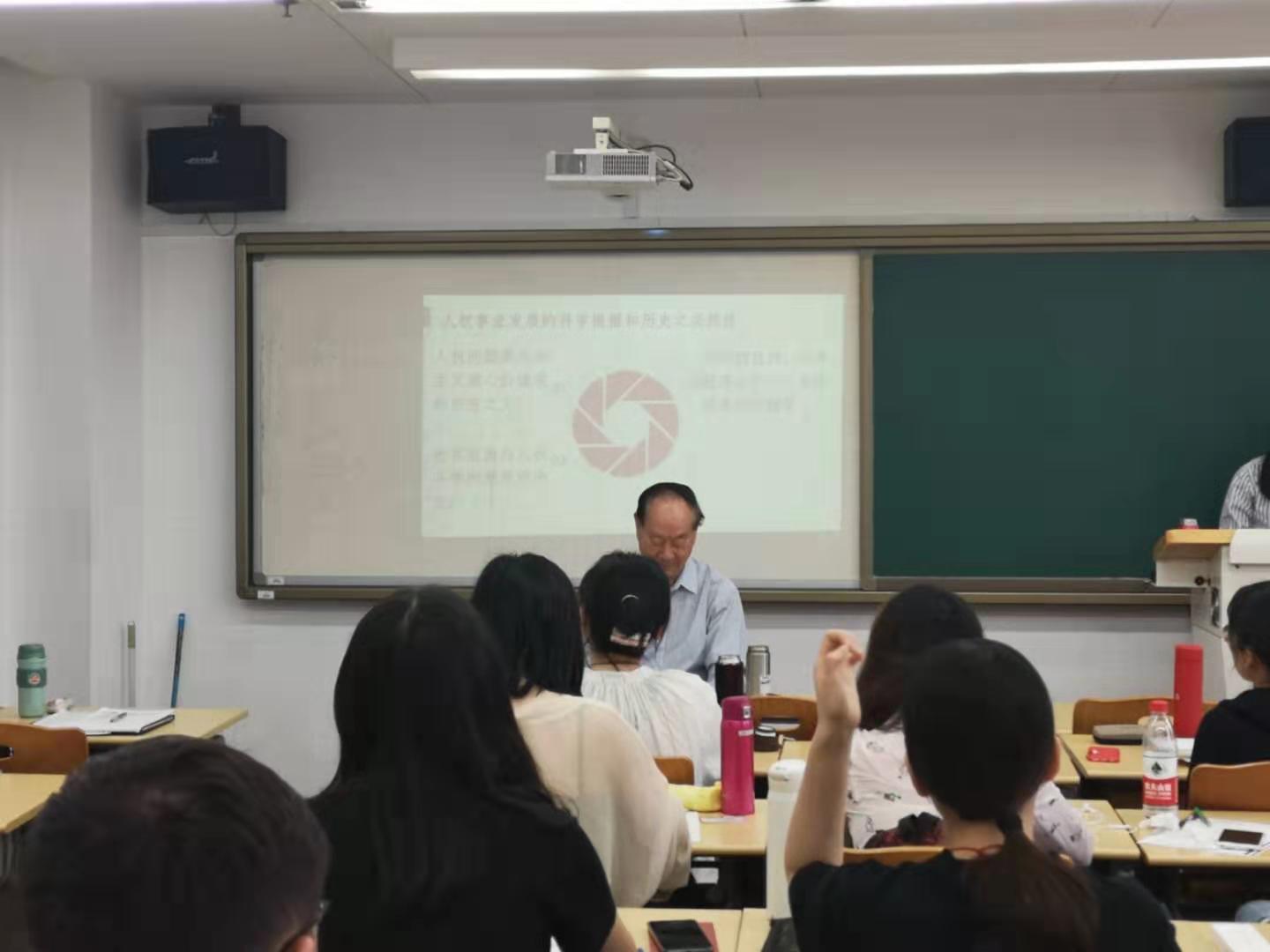On the morning of September 12, 2019, the 363th Global Human Rights Forum was held at A209, Research Building, College Road Campus, China University of Political Science and Law. Prof. Fan Chongyi, Honorary Dean of Procedural Law Research Institute of China University of Political Science and Law, and Vice President of the Society of Behavioral Law of the Chinese Law Society, gave a special lecture to the teachers and students on the theme of“Construction of Judicial Human Rights and Judicial Human Rights Protection System”. This lecture was hosted by Professor Zhang Wei.

At the beginning of the lecture, Professor Fan put forward some profound insights on the academic methodology of judicial human rights from the perspective of postgraduate learning and thinking transformation. Firstly, Professor Fan said that studying the protection of judicial human rights, we should grasp the law from the history of the development of judicial human rights and the history of criminal litigation. Especially, we need to grasp the law from the great changes of power allocation of criminal litigation in the whole world. And under the premise of mastering the law, we will study the problem and propose innovation points to form innovative academic thinking. Secondly, postgraduate’s research on judicial human rights should grasp the law from the evolution of the litigation model in history. The evolution of litigation mode has gone through the process from repressive litigation, power litigation to consensual litigation. The system of lenient punishment for the admission of guilt and acceptance of punishment in China pays attention to the negotiation between the two parties, and reflects the typical spirit of the suitability litigation model. Thirdly, Professor Fan proposed that after the 1960s, philosophical thinking had a great impact on the development of the Criminal Procedure Law, which led to six major changes in the Criminal Procedure Law. For example, the rise of plea bargaining, the expansion of summary procedures and the establishment of the pleading guilty procedure of the complainant. Therefore, as a researcher of judicial human rights, it is crucial to cultivate philosophical thinking and to study legal philosophy. How to study philosophy from the perspective of judicial human rights? Professor Fan believes that, first of all, we should take Marxist epistemology as the basis, think about epistemology of litigation, solve problems with the true standards of law, and criticize the objective and real standards of debate. Secondly, we must also adhere to the theory of litigation value and link the values of litigation such as fairness, justice and freedom. which is the basic position and goal. At the same time, we should also adhere to the people-oriented, make litigation more humane care and reflect the human spirit. Finally, return to empirical research, increase the links of big data research, and stick to the empirical theory of litigation.
Then, Professor Fan transferred the topic to the concrete construction of the judicial human rights protection system. First of all, Professor Fan introduced the situation of the development of human rights in China. China has achieved a huge leap from respecting and safeguarding human rights to improving human rights judicial protection. Then, Professor Fan showed us the specific process of the development of judicial human rights from the emergence of criminal procedure law and two overhauls. Especially in the two major overhauls of the Criminal Procedure Law of 1996 and 2012, the principle of presumption of innocence was written into the code, and the establishment of a mechanism for extorting a confession by torture, which both were important results of the development of the judicial human rights cause. Then, Professor Fan analyzed the status quo and problems of human rights protection. Professor Fan believes that there are still many controversial views on the understanding of judicial human rights. For example, there are contradictions between criminals’ human rights and punishment. Some people believe that if we want to punish criminals, we cannot talk about human rights and other issues. In the practice and application of the Criminal Procedure Law, there are also many issues such as torture, illegal investigations and illegal evidence. Finally, Professor Fan pointed out that it was particularly important to establish a sound judicial human rights protection system. The construction of the judicial human rights protection system should be based on its substantive guarantees and procedural safeguards. In terms of substantive law, we can protect human rights from protecting personal freedom, right to life, property rights and so on. The procedural law can be carried out according to the logical sequence of purpose, task, basic principle and basic system.
At the end of the lecture, Professor Fan hoped that the new undergraduates will change their thinking mode of study as soon as possible, strive to study the issue of judicial human rights protection, and obtain their own outstanding research results.

Written by SONG Wenhao